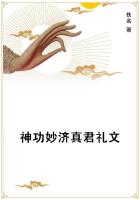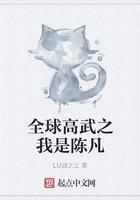Friedrich's exertions are passionate, almost desperate;rallying, animating, new-ordering; everywhere in the hottest of the fire. "Thrice he personally led on the main attack." He has had two horses shot down under him; mounting a third, this too gets a bullet in an artery of the neck, and is about falling, when two Adjutants save the King. In his waistcoat-pocket some small gold case (ETUI) has got smitten flat by a bullet, which would otherwise have ended matters. The people about him remonstrate on such exposure of a life beyond value; he answers curtly, "We must all of us try every method here, to win the Battle: I, like every other, must stand to my duty here!" These, and a second brief word or two farther on, are all of articulate that we hear from him this day.
Friedrich's wearied battalions here on the Heights, while the Spitzberg to left goes so ill, fight desperately; but cannot prevail farther; and in spite of Friedrich's vehement rallyings and urgings, gradually lose ground,--back at last to Kunersdorf and the Kuhgrund again. The Loudon grenadiers, and exclaimed masses of fresh Russians, are not to be broken, but advance and advance.
Fancy the panting death-labors, and spasmodic toilings and bafflings, of those poor Prussians and their King! Nothing now succeeding; the death-agony now come; all hearts growing hopeless;only one heart still seeing hope. The Spitzberg is impossible;tried how often I know not. Finck, from the Alder Waste, with his Infantry, attacks, and again attacks; without success: "Let the Cavalry go round, then, and try there. Seidlitz we have not;you Eugen of Wurtemberg lead them!" Eugen leads them (cuirassiers, or we will forget what); round by the eastern end of the Muhlberg;then westward, along the Alder Waste; finally southward, against the Russian flank, himself foremost, and at the gallop for charging:--Eugen, "looking round, finds his men all gone," and has to gallop the other way, gets wounded to boot. Puttkammer, with Hussars, then tried it; Puttkammer was shot dead, and his Hussars too could do nothing.
Back, slowly back, go the Prussians generally, nothing now succeeds with them. Back to the Kuhgrund again; fairly over the steep brow there; the Russians serrying their ranks atop, rearranging their many guns. There, once more, rose frightful struggle;desperate attempt by the fordone Prussians to retake that Height.
"Lasted fifteen minutes, line to line not fifty yards asunder;"such musketry,--our last cartridges withal. Ardent Prussian parties trying to storm up; few ever getting to the top, none ever standing there alive one minute. This was the death-agony of the Battle.
Loudon, waiting behind the Spitzberg, dashes forward now, towards the Kuhgrund and our Left Flank. At sight of which a universal feeling shivers through the Prussian heart, "Hope ended, then!"--and their solid ranks rustle everywhere; and melt into one wild deluge, ebbing from the place as fast as it can.
It is towards six o'clock; the sweltering Sun is now fallen low and veiled; gray evening sinking over those wastes. "N'Y A-T-IL DONCPAS UN BOUGRE DE BOULET QUI PUISSE M'ATTEINDREE (Is there no one b-- of a ball that can reach me, then)?" exclaimed Friedrich in despair. Such a day he had never thought to see. The pillar of the State, the Prussian Army itself, gone to chaos in this manner.
Friedrich still passionately struggles, exhorts, commands, entreats even with tears, "Children, don't forsake me, in this pinch (KINDER, VERLASSET HEUTE MICH, EUREN KONIG, EUREN VATER, NICHT)!"[Kriele, p. 169.]--but all ears are deaf. On the Muhlberg one regiment still stood by their guns, covering the retreat. But the retreat is more and more a flight; "no Prussian Army was ever seen in such a state." At the Bridges of that Hen-Floss, there was such a crowding, all our guns got jammed; and had to be left, 165 of them of various calibre, and the whole of the Russian 180 that were once in our hands. Had the chase been vigorous, this Prussian Army had been heard of no more. But beyond the Muhlberg, there was little or no pursuit; through the wood the Army, all in chaos, but without molestation otherwise, made for its Oder Bridges by the way it had come. [Tempelhof, iii. 179-200; Retzow, ii. 80-115:
in Seyfarth, <italic> Beylagen, <end italic> ii. 589-598, <italic>
Bericht von der am 12 August, 1759 bey Kunersdorf vorgefallenen Schlacht <end italic> (Official); and IB. 598-603, <italic>
Beschreibung der &c. <end italic> (by a Private Hand): lucidly accurate both.]
Friedrich was among the last to quit the ground. He seemed stupefied by the excess of his emotions; in no haste to go;uncertain whether he would go at all. His adjutants were about him, and a small party of Ziethen Hussars under Captain Prittwitz.
Wild swarms of Cossacks approached the place. "PRITTWITZ, ICH BINVERLOREN (Prittwitz, I am lost)!" remarked he. "NEIN, IHROMAJESTAT!" answered Prittwitz with enthusiasm; charged fiercely, he and his few, into the swarms of Cossacks; cut them about, held them at bay, or sent them else-whither, while the Adjutants seized Friedrich's bridle, and galloped off with him. At OEtscher and the Bridges, Friedrich found of his late Army not quite 3,000 men.
Even Wunsch is not there till next morning. Wunsch with his Party had, early in the afternoon, laid hold of Frankfurt, as ordered;made the garrison prisoners, blocked the Oder Bridge;poor Frankfurt tremulously thanking Heaven for him, and for such an omen. In spite of their Wagenburg and these Pontoon-Bridges, it appears, there would have been no retreat for the Russians except into Wunsch's cannon: Wagenburg way, latish in the afternoon, there was such a scramble of runaways and retreating baggage, all was jammed into impassability; scarcely could a single man get through.
In case of defeat, the Russian Army would have had no chance but surrender or extermination. [Tempelhof, iii. 194: in Retzow (ii.















